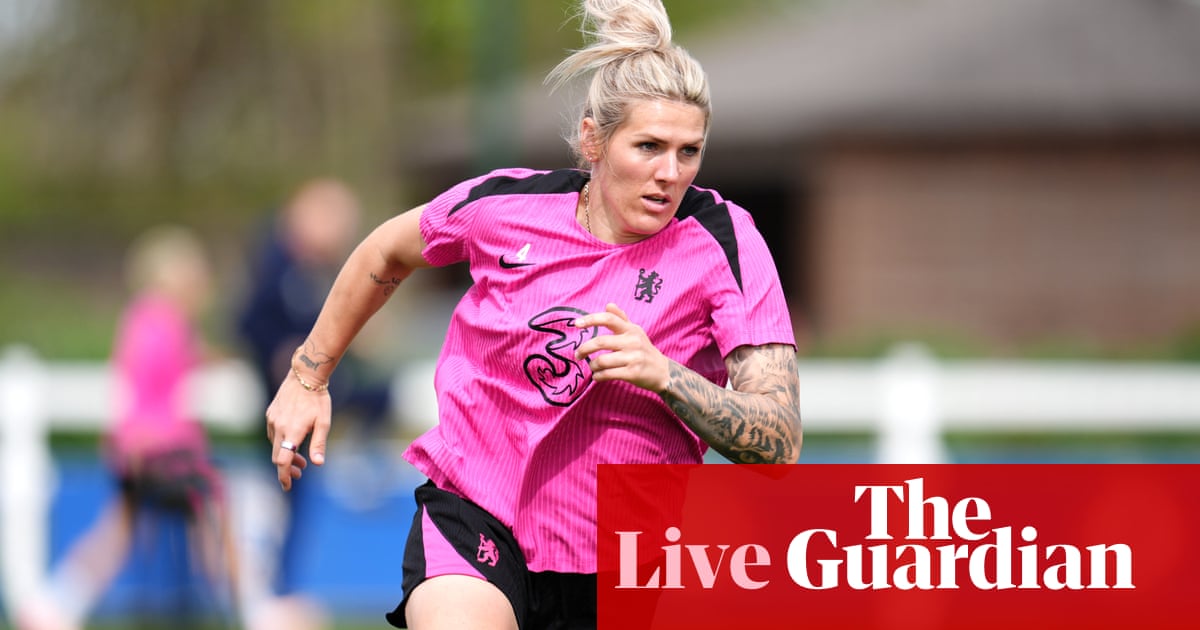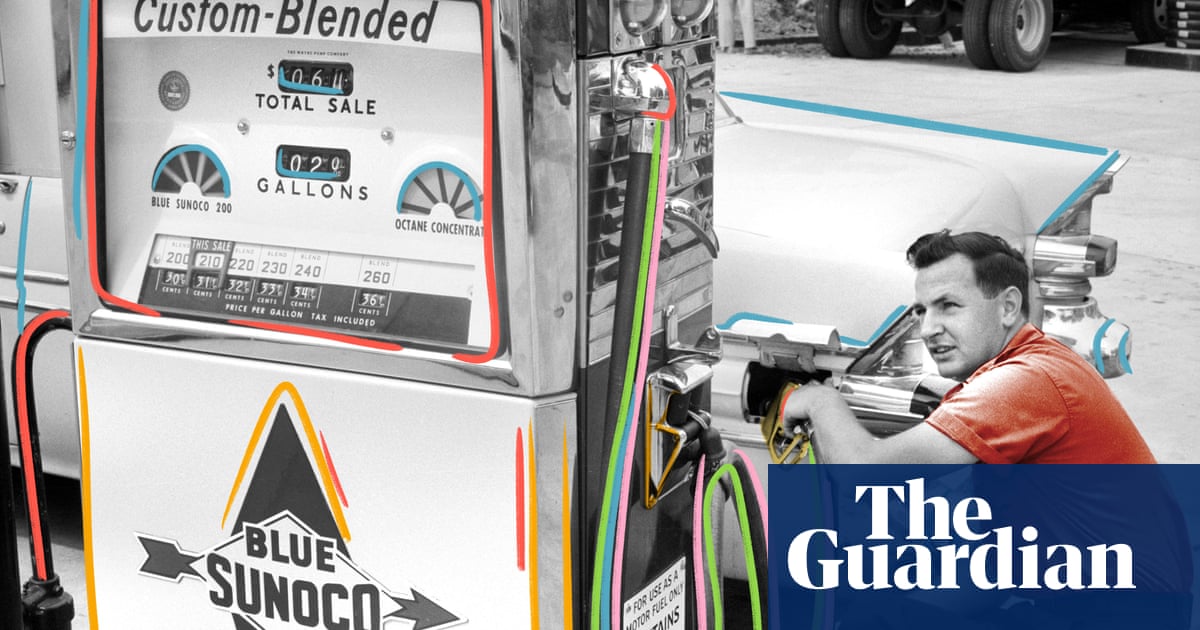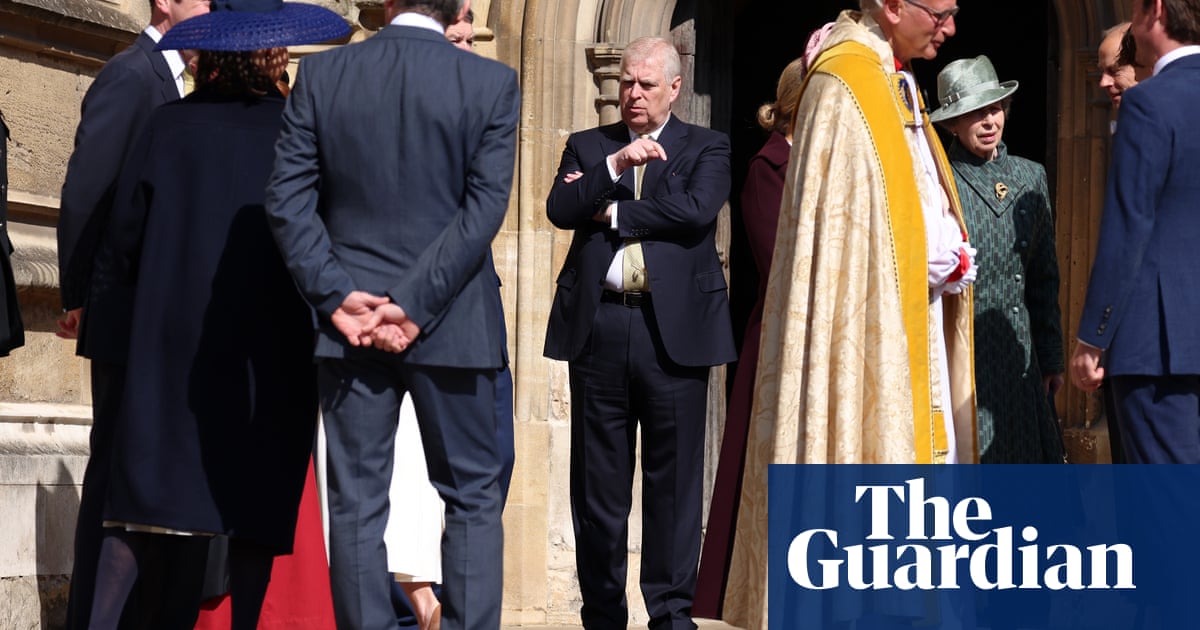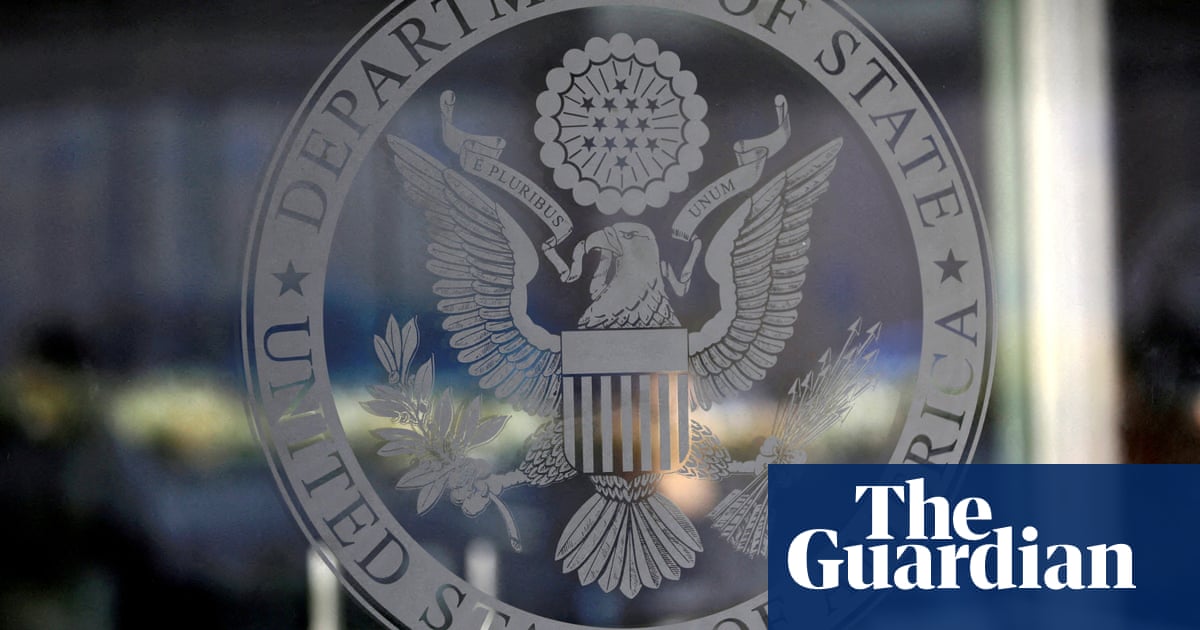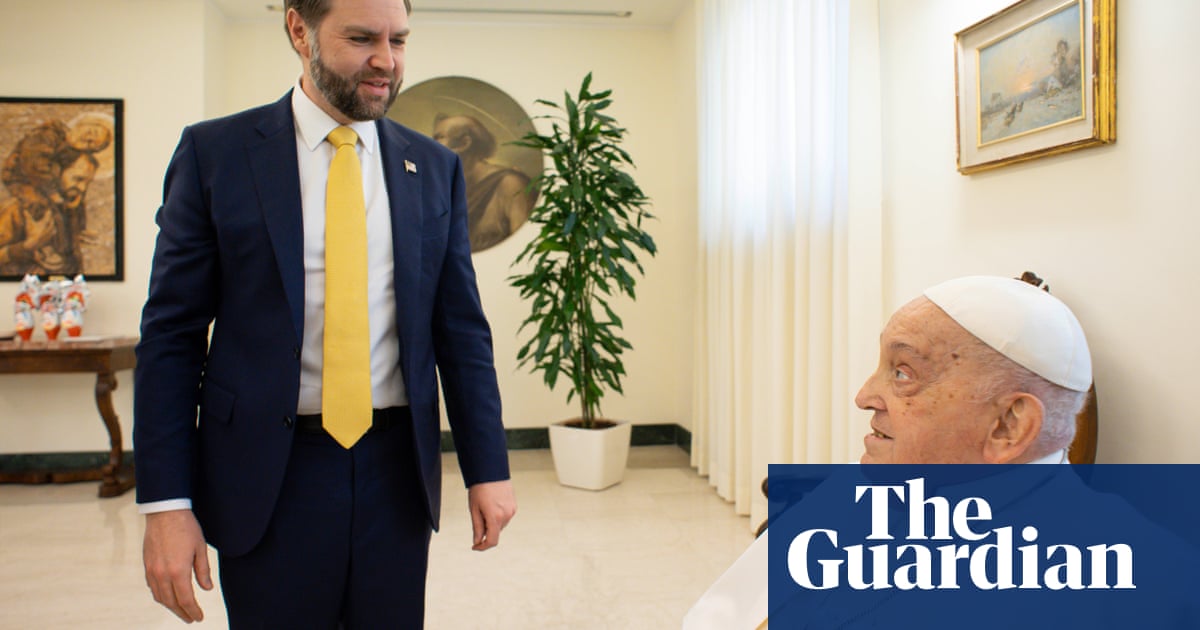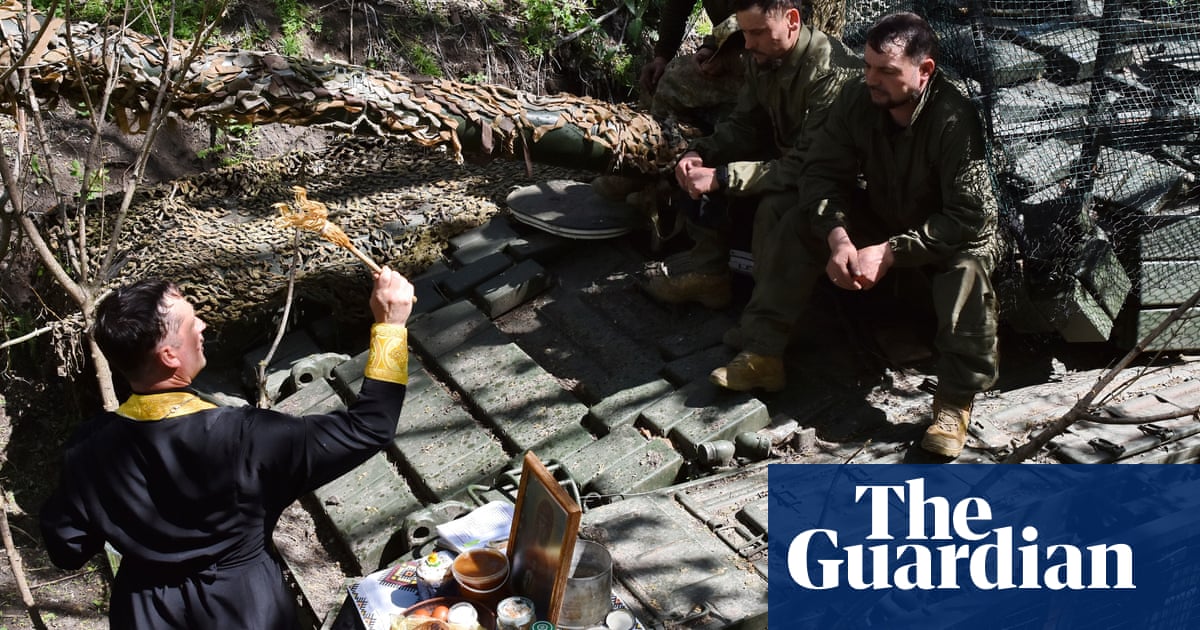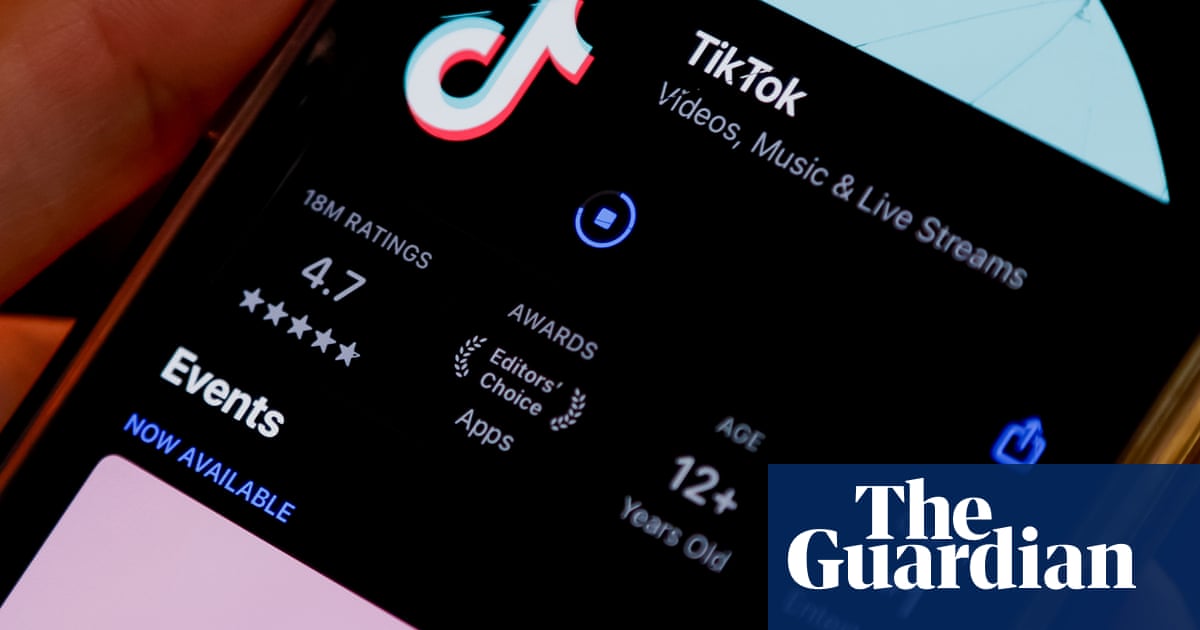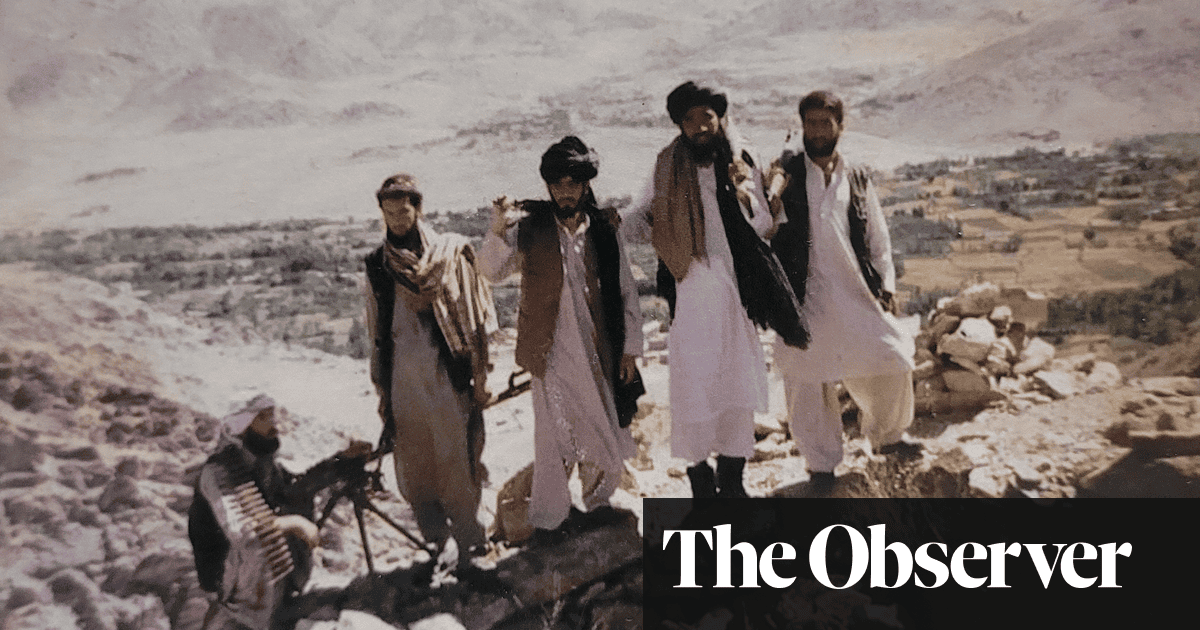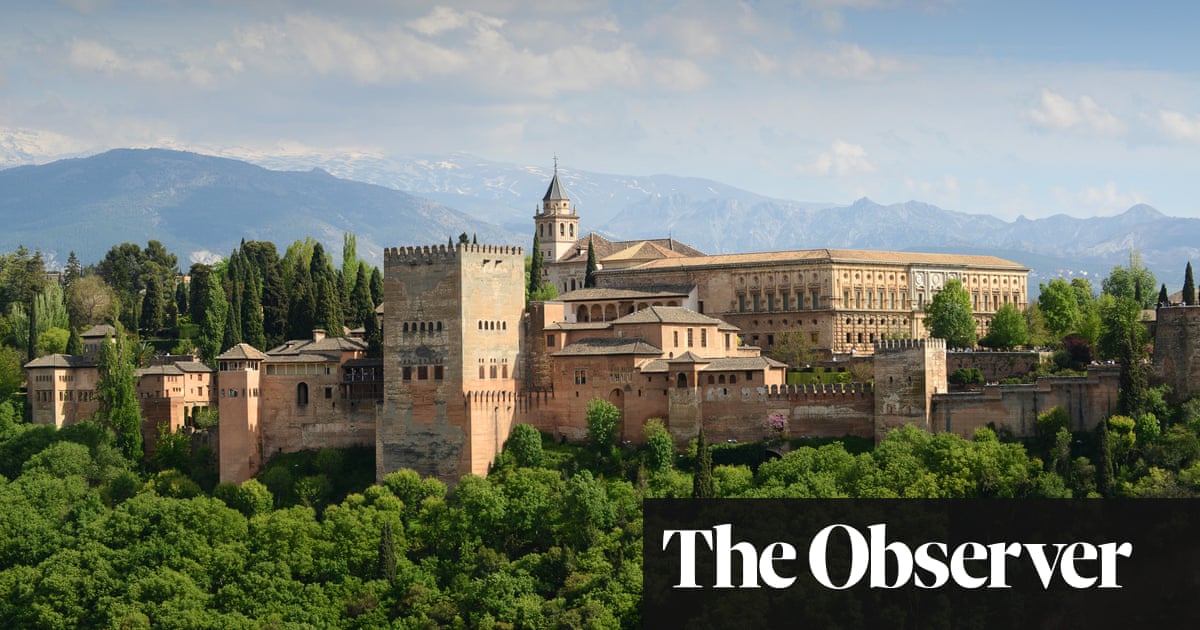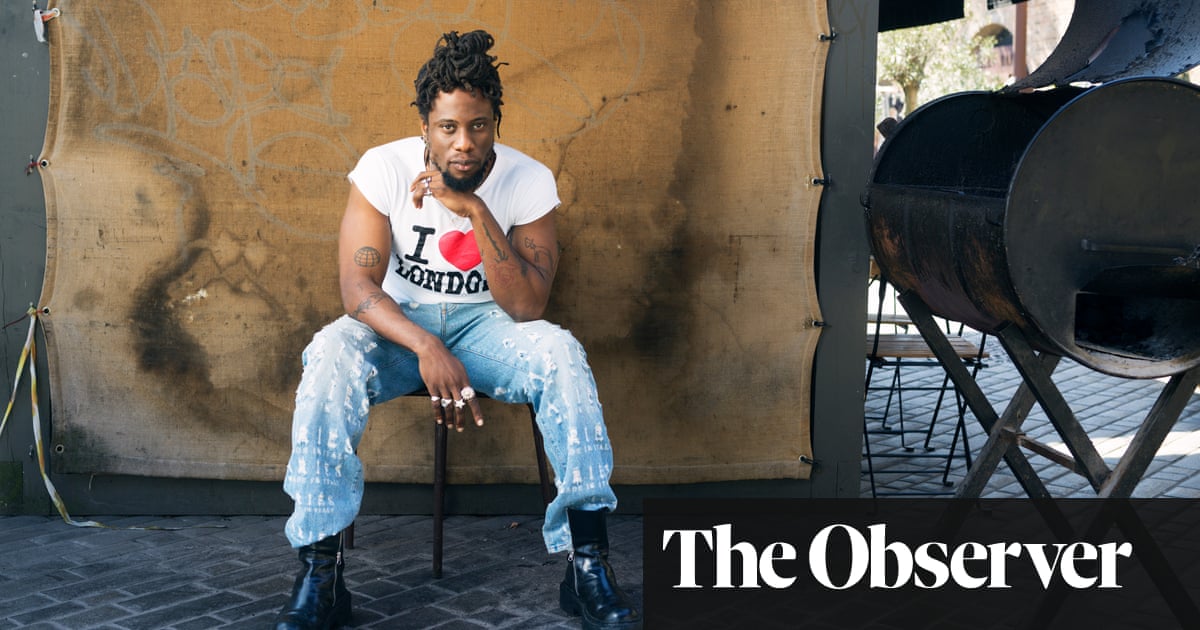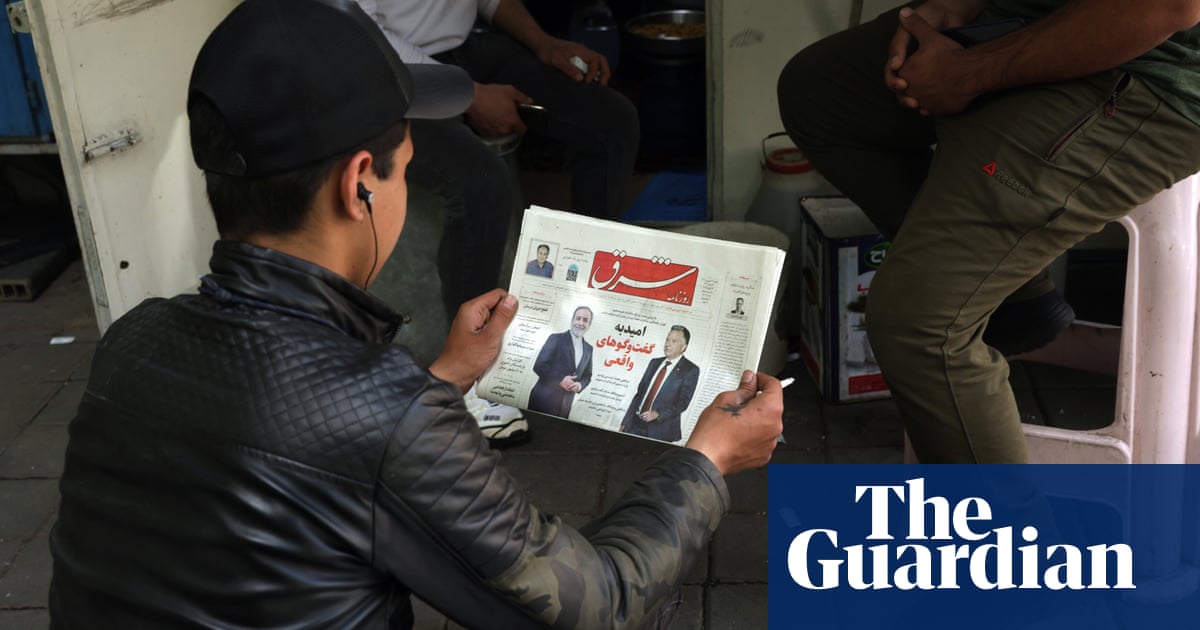Joan Laporta arrived at the King Abdullah stadium in Jeddah performing an up-yours and shouting at the “shameless sons of bitches” there, and left again three nights later with the Spanish Super Cup. These had been some weeks and this was some way to end them, only this never truly ends. Debated in parliament, a question of state occupying everyone, Barcelona’s president could not escape the spotlight; now, late on Sunday, 12 days into the new year and 12 days on from that deadline, nor did he want to. So on the pitch, surrounded by confetti, cameras right in front of him and players right behind – Dani Olmo and Pau Víctor included – he stepped centre-stage again, this time taking the trophy, all triumphant.
At the end of the Super Cup, the Real Madrid president Florentino Pérez had whispered to Luka Modric “we had to lose a final some time, no?” and the Croatian agreed. “If we have to choose, I prefer it to be this one,” he told the television cameras. Which, while true, didn’t feel like much of a consolation right then – and not just because it doesn’t work like that, the nature of defeat suggesting others are more likely to follow, not less – and didn’t do much to diminish its significance for their rivals, which was not just the fact that they had won a title, the first under Hansi Flick, but the way they won it. When they had won it too, a sense of liberation in victory. For Laporta and Olmo, particularly.
This was the perfect clásico, one preview proclaimed. Played in Saudi Arabia, 5,000km away from home, it could never be that, but it did have almost everything else. Scorers of four goals in October’s meeting, which had been big enough and ended up being a battering, this was supposed to be even bigger; it was certainly supposed to be closer. Since then, Barcelona had unravelled and Madrid had revived. Flick’s side had lost three home games in a row, against Las Palmas, Leganés and Atlético, collecting a single league win in seven. They also arrived in Saudi Arabia banned from playing Olmo, the season’s most expensive signing. Carlo Ancelotti’s team, meanwhile, had not lost in eight in all competitions, winning seven and scoring three, four and five in their last three matches. Victory back then had put Barcelona top, six points ahead of Madrid with a game in hand; now they were third, five behind, and six off leaders Atlético who had just completed a 14th consecutive win.
Instead, Barcelona went one better: four then, five now. Another manita or little hand, symbol of a crisis averted, for a while at least, a goal for every finger: Lamine Yamal, Robert Lewandowski, Raphinha, Alejandro Balde and Raphinha again. “It’s not nice that your rivals score nine in two games,” Modric said. It could have been nastier: already 5-1 up on 49 minutes, that it ended 5-2, admitted Manuel Jabois, the author of Madrid’s anthem, was a “relief”. Barcelona, after all, had been forced to play 40 minutes of it with only 10 men after Wojciech Szczesny, first called up because Iñaki Peña had arrived late to a team meeting, went out for cigarettes, took down Kylian Mbappé and was sent off, leaving Barcelona to replace the ruthlessness and incision for a control which, in its own way, was almost as impressive.
It was, said El Mundo Deportivo’s front page, “a superhand”. AS’s cover called it a “superbeating”. Marca went with a “superbath”: bubbles, loofah, the lot. They had done it having gone a goal down inside six minutes and a man down inside 60. The full-backs, Balde and Jules Koundé, were fantastic. Marc Casadó, unknown six months ago, left his name all over the final. Pedri was, well, Pedri. And Lamine is 17, which you know and you’re bored of by now but you still don’t quite believe – and, yes, his goal did remind you of that guy.

Raphinha, officially MVP even if AS seemed to think that was some bloke in a tie, got four stars from the paper – out of three. Scorer of 19 goals and provider of nine assists this season, he did everything again. Including carrying Madrid’s medical bag to the touchline when they started bandaging up Mbappé’s ankle in the middle of the pitch. And four games later, there had also been a goal and assist from Lewandowski, a picture of the recovery they had all needed.
“Christmas was good for us,” he said afterwards. Only not for all of them, it wasn’t, and that was the point – the reason why this came as such a relief, another explanation for the euphoria at the end. For Olmo, a blameless victim in all this, especially. For Víctor, an equally blameless and significantly more overlooked victim, too. And for the president at the heart of it. Together, they and the endless other actors had provided the context to this clásico. At times it felt like the entire context, in fact: not just to the clásico but the whole of Spanish football, like this was the only thing happening.
What was happening was this: on 31 December, the league announced that Barcelona had missed the deadline to comply with financial controls. Still over their €462m salary limit, that meant that the temporary registrations given to Olmo and Víctor in August ran out and, with a request to the federation to issue them with a new licence ignored and two legal challenges having already failed, they were unilaterally removed from the squad. Six months after joining for €50m, a clause in Olmo’s contract now meant he could walk away for free. He didn’t want to but nor, his agent insisted, did he just want to watch games; he wanted to play them. And he wasn’t impressed.
Barcelona briefed that a late €100m deal to sell VIP boxes at the new Camp Nou to Middle Eastern investors – who the vice-president didn’t know the names of – had been completed to get the club back within their limit. The league, though, said that proof of payment hadn’t come in time. And while by 3 January Barça were within budget, league and federation rules prevent the same player being registered twice in a single season: they could sign someone else but not the two players they already owned. A joint league and federation statement insisted that, based on a “literal interpretation” of the rules neither would be able to play again this season, which sounded like a definitive prohibition but also served as an invitation.
The club took the case to the Spanish sports council (CSD), a government body which put a final decision on hold, effectively imposing an injunction while they investigated. Barcelona weren’t right, necessarily, but the damage done would be too great to leave the players unregistered, the CSD said, and so they could play. Barcelona had been saved by the state.

The announcement that Olmo and Víctor would be reinstated came just before the Super Cup semi-final, something fitting about the story demanding everyone’s attention when the actual football was on. As Laporta arrived at the King Abdullah Stadium, cameras caught a relieved and victorious president under pressure and facing opposition figures who demanded his resignation celebrating and performing a butifarra – which is a kind of Catalan sausage and also an “up yours” gesture. From there, he headed to the directors’ box where where he shouted at the “shameless sons of bitches” in the federation. A couple of days later Laporta, who had not spoken for a month, sort of apologised when he said that football is about emotion. This situation could have been avoided had it been handled differently, he said.
after newsletter promotion
Everyone else would have agreed if he hadn’t meant: by them. Still, at least it was done. Only it is never entirely done and the story which had dominated everything already, the whole circus, certainly wasn’t going away. Even Raphinha, Barcelona’s captain, admitted that he might think twice about coming to to the club given everything Olmo had been through. Laporta was everywhere, a queue to lay into him forming like the one on Ted Striker’s flight. The new president of the Spanish federation, not keen to say much except to suck up to Saudi Arabia, kept quiet. The president of the league, Javier Tebas, had also stayed uncharacteristically silent – but now waded into an online argument with a journalist , which was just like him.
La Liga results
ShowAtlético Madrid 1-0 Osasuna, Las Palmas 1-2 Getafe, Sevilla 1-1 Valencia, Espanyol 1-1 Leganés, Valladolid 1-0 Real Betis, Alavés 0-1 Girona, Rayo Vallecano 2-1 Celta Vigo.
Monday Real Sociedad v Villarreal
Tebas called it a tragicomedy, dismissed Barcelona’s case, attacked the CSD, and launched an appeal against the appeal. The clubs came out too, one after the other, insisting that the CSD decision was unfair and threatens financial control. That a government body intervened had politicians scoring points in parliament. Everyone was furious. Some of the theories were wild. Pedri said he hoped nobody actually believed the one about Barcelona players boycotting the national team if Olmo wasn’t allowed to play.
For now, though, he is – at least until the CSD reaches a conclusion – and on Sunday night, he was introduced with half an hour left, finally back on the field for another wild clásico, relief at last. At the whistle, a trophy winner for the first time at the club he joined in the summer and feared he might have to leave again five months later, teammates pushed him towards the stands, joining him as he pulled at the badge over his heart and tapped at his wrist. Somehow Olmo Time had come after all, better late than never, Dani, Pau and the rest of Barcelona’s players then lining up behind the president as, unleashed once more, Laporta lifted the Spanish Super Cup into the Saudi sky.
-
Comments will open on this piece later

 3 months ago
52
3 months ago
52

